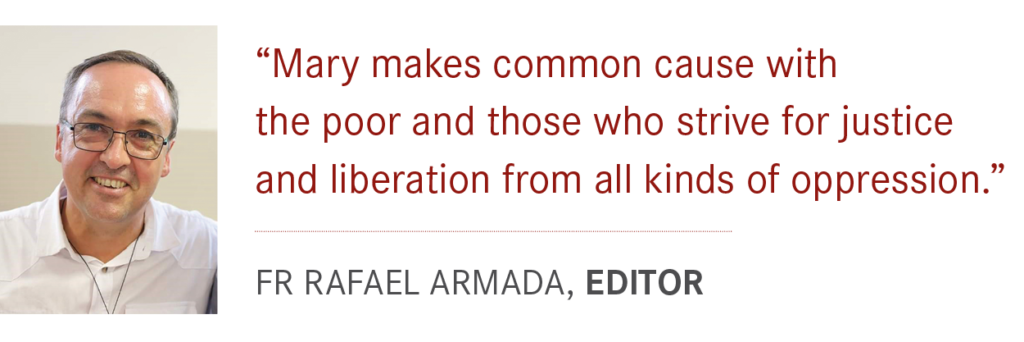EDITORIAL

The Gratitude We Owe To Women
AUGUST IS women’s month in South Africa. Two events stand out in its calendar. Firstly, chronologically speaking, the anti-pass march, on 9 August 1956—this year commemorating its 65th anniversary—in Pretoria. A multiracial group of 20 000 women marched to the Union Buildings protesting against the apartheid government’s intention to force them to carry pass books justifying their presence in ‘white towns’. Led by Lilian Ngoyi and Helen Joseph among others, “they marched with babies on their backs, holding children by the hand, to demand freedom from those pass laws that divided their families. Pass books had been introduced to black men across the country in 1952, linking them to white employers, and it was announced that they would extend them to black women, threatening their ability to live with their kin if they were not employed in the cities”. (Healy-Clancy, M. 2017. The family politics of the Federation of South African Women: A history of public motherhood in women’s antiracist activism. In www.journals.uchicago.edu/)
The anti-pass march was one of the biggest anti-apartheid demonstrations and an awesome manifestation of courage. However, as Gugulethu Mhlungu points out in her book, published in 2021, You have struck a rock, “women activism has gone unreported and is poorly archived.” We have, thus, as society, a debt of gratitude towards them.
The Federation of South African Women, founded in 1954, played a very important role in these events. They became the first national organization of women from all state-defined racial groups united against apartheid.
Their manifesto of rights, the Women’s Charter, stated: “We women share the problems and anxieties of men and join hands with them to remove evils from a society that is divided into poor and rich, non-European and European, with privileges for the few, discrimination and harsh treatment for the many.
As wives and mothers, it falls upon us to make small wages stretch a long way. We feel the cries of our children when they are hungry and sick; care for the homes that are too small, broken and dirty to be kept clean.
We know the burden of looking after children and land when our husbands are away in the mines, on the farms, and in the towns earning our daily bread.
We know what it is to keep family life going in pondokkies and shanties, or in overcrowded one-room apartments. We know the bitterness of children taken to lawless ways, of daughters becoming unmarried mothers whilst still at school, of boys and girls growing up without education, training or jobs at a living wage.”
As the Truth and Reconciliation Commission’s final report stated: “Black women, in particular, are disadvantaged, and black women living in former homeland areas remain the most disadvantaged of all.” The political situation has changed in South Africa but, as G. Mhlungu says, “these findings about apartheid remain true almost three decades later.” The Covid 19 pandemic has made manifest the inequalities of the world and the looting and unrest taking place —as this editorial is written—in KZN and Gauteng provinces, unacceptable as they are, depict the frustration and the abandonment that many citizens experience.
Secondly, on 15th August, we celebrate the feast of the Ascension of Mary. A simple and humble woman who proclaims the triumph—and our triumph with her—of life over death, as she already enjoys the glory of Christ’s resurrection. Mary makes common cause with the poor and those who strive for justice and liberation from any kind of oppression, as she proclaims in her Magnificat: “The Lord has pulled down princes from their thrones and exalted the lowly. The hungry he has filled with good things, the rich sent empty away” (Lk 1: 52, 53).
The two events, though in different realms, signify the victory of righteousness and justice over discrimination and decay; both reaffirm us in our Christian commitment and belief that good will have the last word in the battle against evil. With gratitude and appreciation to our mothers and sisters in South Africa, we say:
Thank you! Happy women’s month!
